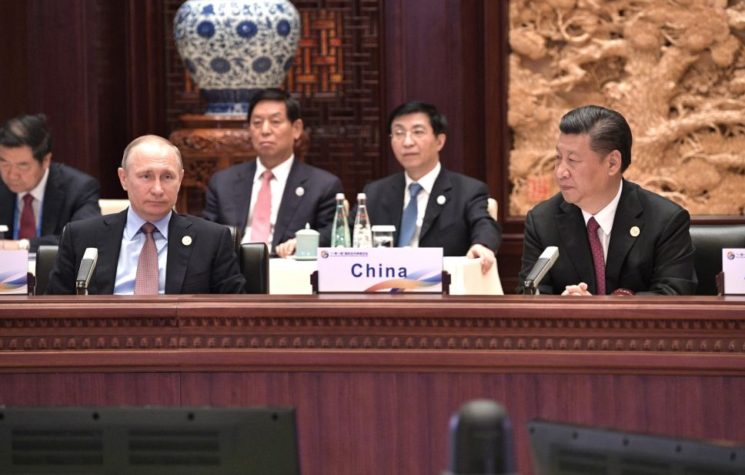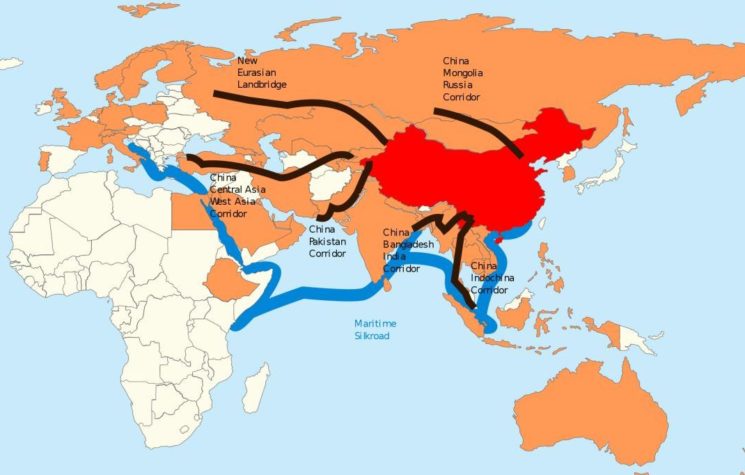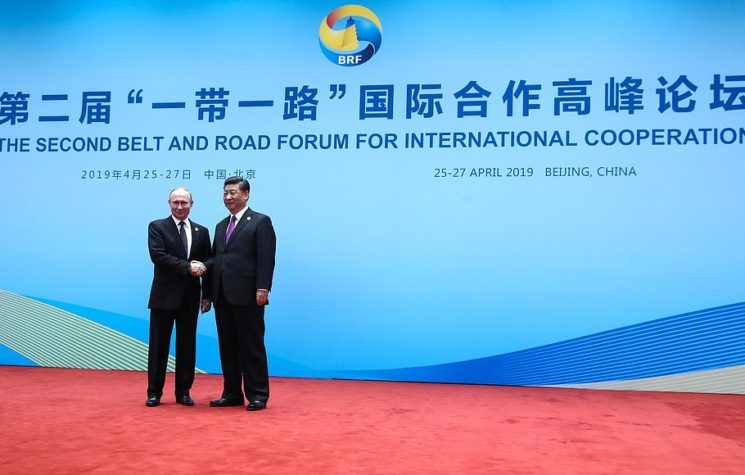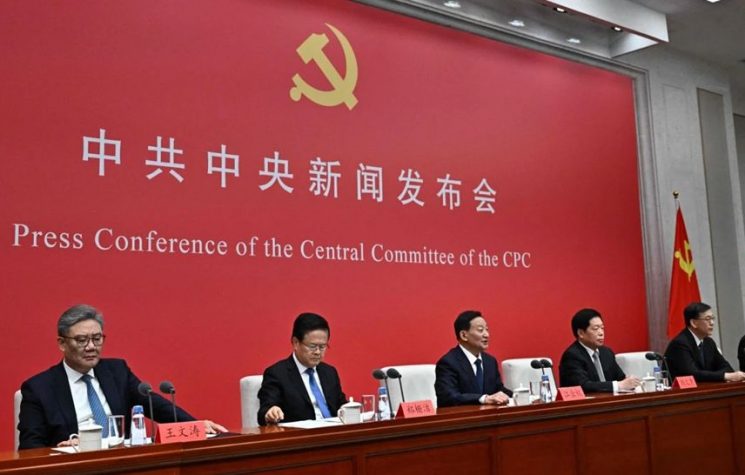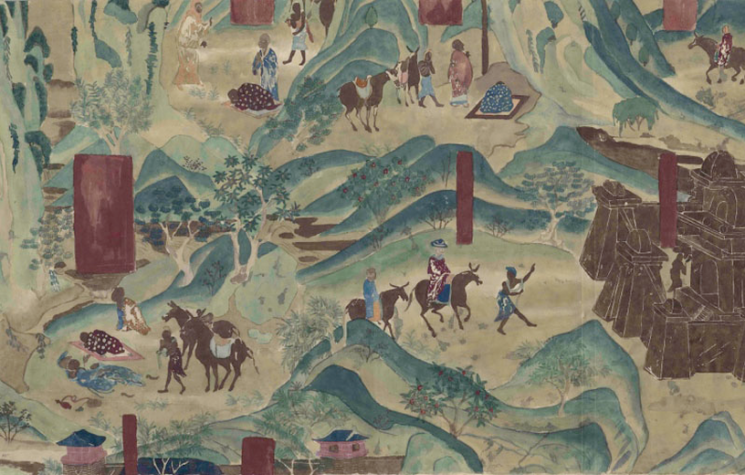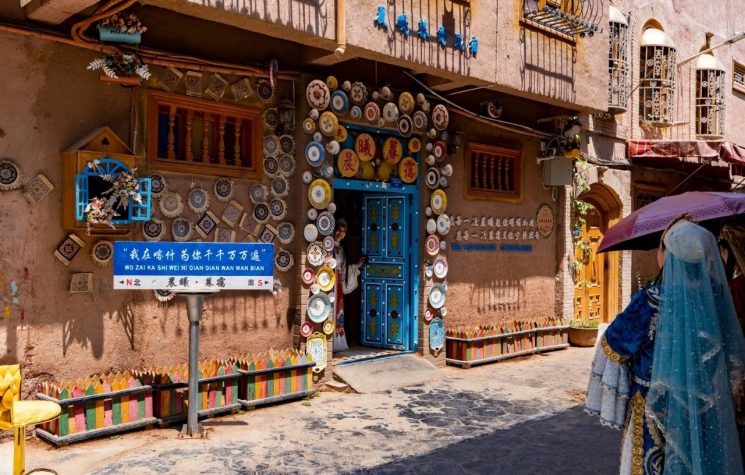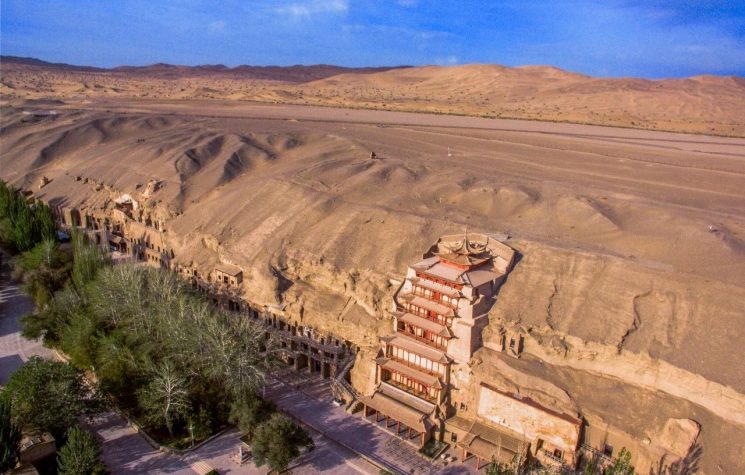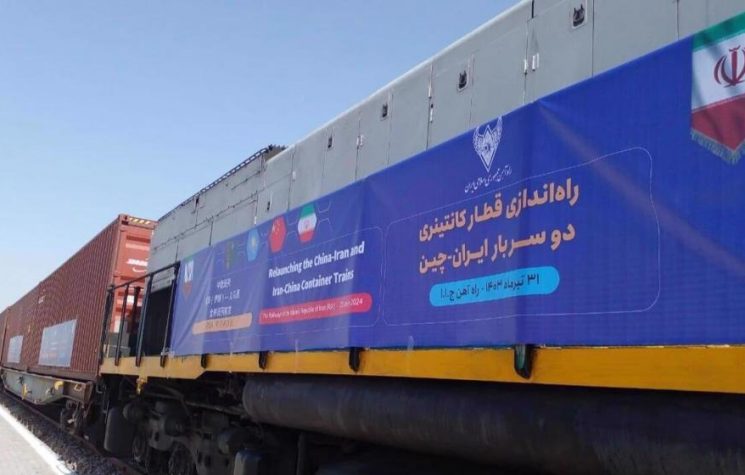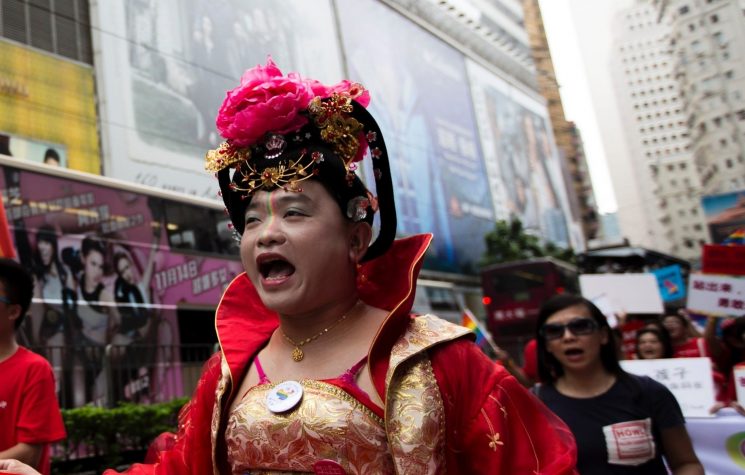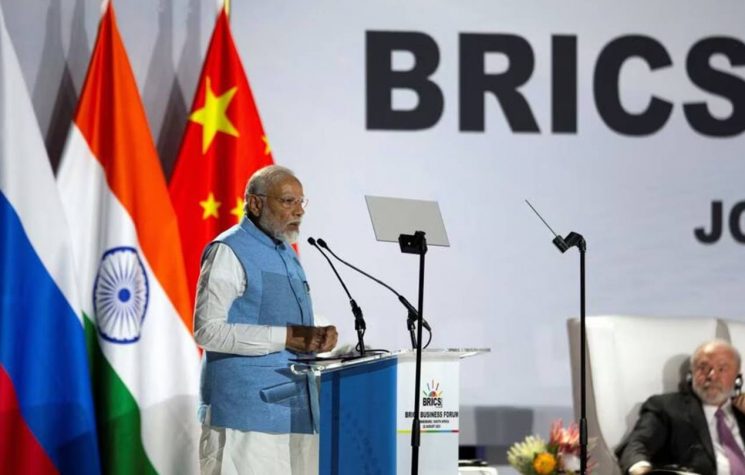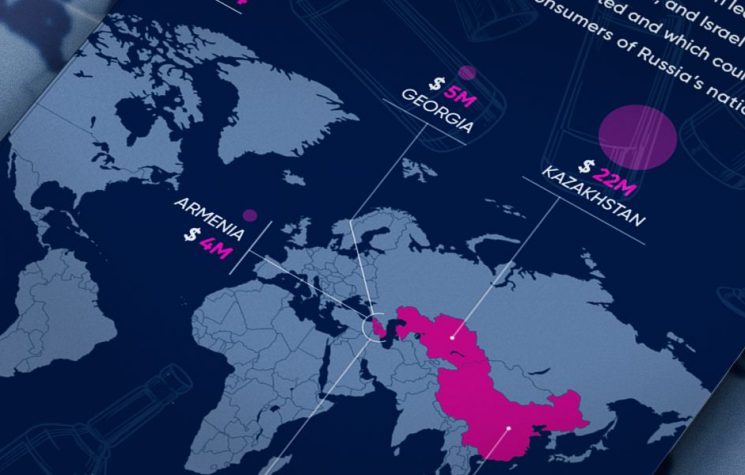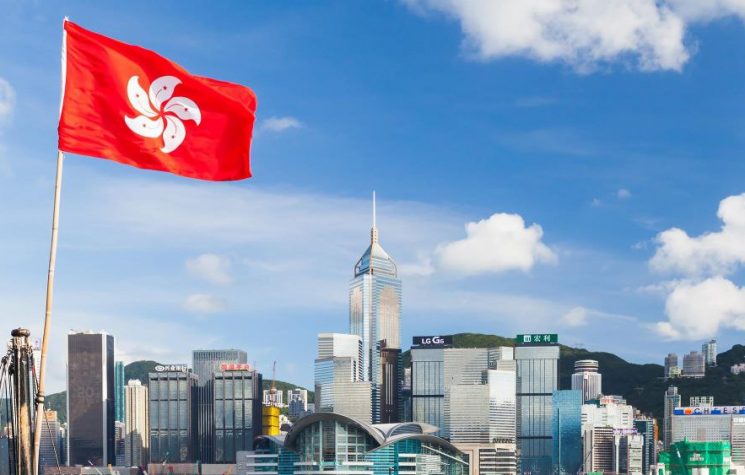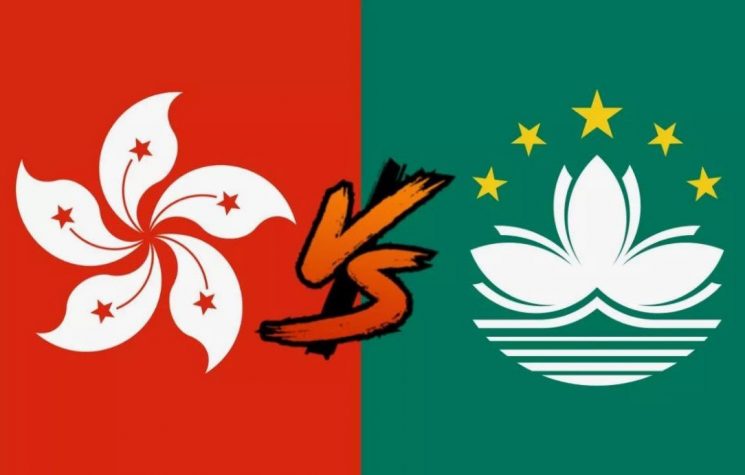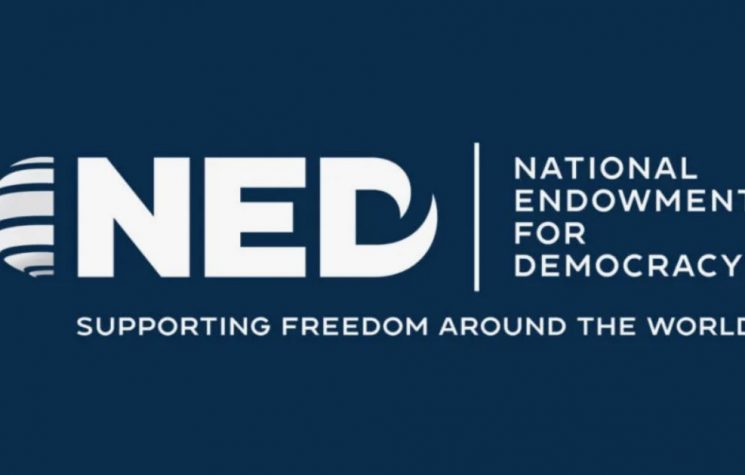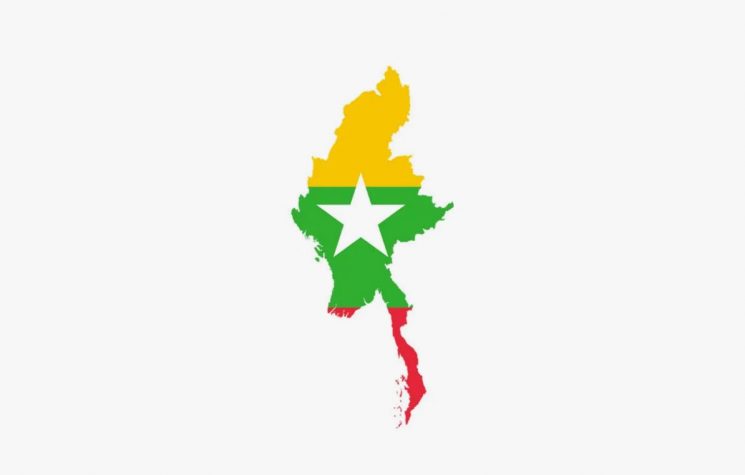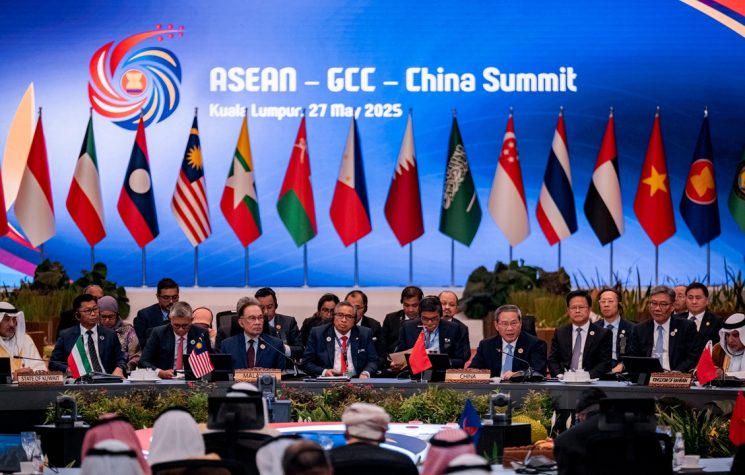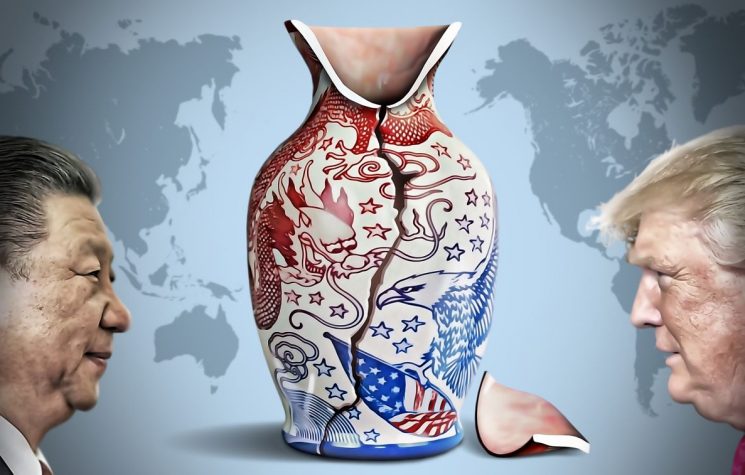To the chagrin of those authors of color revolutions who have invested so much time and energy in their attempts to undermine national sovereignty as seen in Hong Kong today, not only have their plans to overthrow Bashar al Assad, and President Maduro failed, but even their simpler objectives to foment separatist movements among ethnic minorities in China (such as the Uyghurs and Tibetan Buddhists) collapsed miserably. The reason for this failure is simple.
China has allied with a growing array of nations to create a comprehensive international program operating on every imaginable level of human activity which is essentially… creative.
Take the Belt and Road Initiative (BRI) as an example. This program has evolved in its six years of existence from an idea which most establishment hacks wrote off as wildly utopian, to becoming the primary force for world development today. Rather than being a crystalized, defined idea, the BRI is flexible and open to change which frustrates insecure technocrats due to the fact that it is not susceptible to formulas while its effects increase the hope and optimism of all effected by demonstrating not only that peoples’ lives can improve, but that the government which effects such improvement may not be worth hating and fearing as these minorities are told they should.
This creative power should not be a mystery as the principle of “win-win” cooperation is much more in harmony with natural law than the twisted Hobbesian world view of zero sum geopolitics that has brought the world to the brink of nuclear war and economic collapse.
The Case of Hong Kong and the BRI
In the case of Hong Kong, a former British colony still infested with deep-seated Anglo-American intelligence and banking ties, the commitment to join the BRI began to arise as early as 2016 with the first BRI Summit that since became an annual event.
By 2017, Hong Kong Chief Executive Carrie Lam announced that she would do everything in her power to ensure the region’s full participation in the BRI – with a focus on the growing “Macau-Guangdong-HK Greater Bay Area” economic zone which incorporates two independent administrative regions into a unified China policy. Macau was a Portuguese colony until it was returned to China in 1999. In the course of dozens of BRI conferences since 2016, Carrie Lam has made the point that the region’s financial services, legal and logistic capacities can provide invaluable support to the BRI while its ports make it a key node in the Maritime component of the New Silk Road. Arguably the most important element in this mix is Hong Kong’s unique cultural character making it a key spiritual connection between east and west which geopolitical ideologues such as Samuel P. Huntington and Sir Bernard Lewis demanded could not exist.
As Mrs. Lam announced this policy, key Pacific nations long thought to be under the yolk of western geopoliticians such as Malaysia, South Korea, the Philippines, and even Japan increasingly made their intentions to join BRI known, putting the U.S-led containment of China at risk.
The 2019 BRI Summit in Hong Kong
The 4th annual Hong Kong Belt and Road Summit took place from September 10-11 featuring 5800 guests from business, academia, finance and non-governmental organizations committed to accelerating Hong Kong’s involvement with the BRI. Mrs. Lam, as well as leaders of China’s government addressed the opening assembly making the point that Hong Kong’s future lies in participation in this win-win alliance.
Xie Feng, commissioner of the Foreign Affairs Ministry of Hong Kong went the furthest in his remarks calling out the foreign influences manipulating Hong Kong saying “Foreign forces have intervened, distorting the truth, and trying to protect those in the wrong and let them get away with it. With this continuous intervention of black hands, violence cannot stop and the rule of law cannot be upheld.”
While China’s interests were well represented, the British Empire was not to be ignored. Unlike the Americans who entirely boycotted the event, the British demonstrated their superior understanding of manipulation once more by not only attending but taking over a major panel at the event.
The Empire Poisons the Well
Among the many presentations, a highly attended panel discussion stood out like a sore thumb on the theme of Geopolitical Risks of the Belt and Road Initiative featuring four Oxford-trained speakers led by Sir Richard Shirreff, former NATO Supreme Commander for Europe and moderated by Andrew Weir, Chairman of the Listing Committee of the Hong Kong Stock Exchange, the Global BRI Forum and honored “Member of the British Empire”. Other Oxford-trained panelists include “Risk-assessment professional Peter Burnett (CEO of Standard Charter Bank, former head of UBS and current chair of the BRI Committee of the HK Association of Banks), and Michael Barrow, CEO of MB Secure Financial.
This panel was particularly interesting as it provided transparent insight into the current sophistry being used by a weak, desperate and dangerous British Empire which seeks to undermine Xi’s Grand Design by redefining its “operating system” by destroying those aspects which generate creative change.
After acknowledging the irrefutable positive effects of the BRI as all good Delphic arguments must, the panelists quickly went to work to get the audience to understand the “risk” this project has created for the world system with Sir Richard going so far as to compare China as the “New Roman Empire summoning African leaders to the capital”. The knight was joined by Barrow who had the nerve to argue that China’s ignorance of the “science of risk analysis” has caused an explosion of resentment from people whose lives are changed against their will leading “to an increase of Islamic extremism” in places like Mozambique!!!
The BRI Delenda Est
These “risk analysis experts” complain that when a mega-project, such as a dam, or railway, or new industrial hub is built the consequences are not entirely predictable. This complaint merely covers the fact that imperialists are also control-freaks who want to maintain their God-like feeling of control by denying all change to nations seeking a better way of life. Whenever scientific and technological progress are introduced justly into a society, that change transforms all of the socio-economic, political relationships both within that society as well as that society’s relationship to the external world- and that is simply what they hate.
Hence, the unfortunate conclusion that all geopoliticians must come to: Creativity= evil.
What exactly did these “risk assessment professionals” propose to subvert the BRI?
- That China is wrong to pursue “Top Down planning” but must transform its operating procedures into the same “market-driven”, bottom up process which also underlies globalization (and keeps bottom up thinkers from seeing the real invisible power structure manipulating the show behind a wall of complexity from the top).
- That ALL risk must be assessed on ALL levels BEFORE projects are built by teams of professionals deployed as “boots on the ground” to “get under the skin of nations”. A new bureaucracy of risk managers would be a perfect mode of throwing sand into the gears of the BRI and rendering its momentum impotent.
- Once this new operating system is created, Sir Richard and his friends argued that China must only build projects in nations which have first solved the meaningless term “corruption” (citing the USA, Britain and Canada as examples of corruption-free societies), and only projects which make minimal environmental impact should be considered by this new reformed BRI. All Oxford panelists shared their belief that de-centralization and monetarist standards must replace the current “sovereignty-driven” model.
Of course, what these arguments propose is merely that China’s BRI become the instrument for a British-run new world order which the failing Anglo-American system was originally meant to be. This process is akin to a virus trying to infect a new host.
Risk Management: “World Problematique Revived”
This new sophistical argument is nothing but a modified “science of World Problematique” created by a team of French and British imperialists in the 1950s and 1960s and which underlies the creation of systems analysis as well as modern ecology.
This “science” was premised upon the cynical belief that future states of humanity can be forecast by denying those positive potentials which our creative discoveries can create to resolve human problems. In denying this driving principle of human life, its adherents asserted that the future could be known by first analyzing the infinite array of “problems” which humanity creates by attempting to make life better for ourselves. By identifying those “problems” which lead to dis-equilibrium (aka: creative change), those problems can more easily be ironed out in a perfectly pre-determined world of blah. This anti-creative ideology is the basis for the End of History thesis published in the midst of the Soviet Collapse in 1991.
It is an irony not to be missed, that not only does World Problematique underlie “right wing” neo conservatism, but is also at the root of the rise of the “new left” ecological movement as its leading adherents included Sir Alexander King who used it to create the Club of Rome in 1969 and a new green technocracy governed by the quasi-science of systems analysis which is more focused upon depopulation than actually cleaning the environment [1].
So if you are happy living in a world that denies creativity, then a new bureaucracy of risk management is the way to go. If, on the other hand, you are a member of the human species and have faith that we were created for something better, then you might want to applaud China’s Belt and Road Initiative, celebrate Hong Kong’s participation in it, and hope your nation joins if it hasn’t done so yet.








